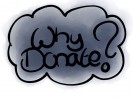Last week, we’ve been hearing about a teacher who, while interviewing for a Catholic primary school, was asked what her views were on “homos”. Yes, they said “homos”, and yes, they were talking about her personal as opposed to professional views. She’s taken her case to the Equality Tribunal, who rightly criticised the school and her interviewers.
Let’s back up a bit, shall we? Here in Ireland, the vast majority of public schools are run by the Catholic church. Before you ask, I don’t mean ‘public’ in the English sense that actually means private (seriously, what’s with that?). The public schools that are being run by the Catholic church here are national schools, paid for by our taxes. It’s a little complicated, but the tl;dr of the situation is that the Church has historically been involved in running most of our schools and hospitals, and although there are now some other options (such as the wonderful Educate Together, which I was lucky enough to go to as a kid myself), they aren’t letting go of any more control than they have to.
The other important point? While in most areas workers in Ireland are protected from discrimination under the Equality Act, this specifically does not apply to educational institutions due to a loophole put in place because of pressure from- wait for it- the Catholic Church, which allows them to implement a specific ethos and hire and fire according to that, regardless of whether it’s discriminatory.
There’s a lot we can say about this. Most of it is either righteously angry or frustrated and annoyed. I’m just getting to the stage where I may have to retire the concept of either ‘ethos’ or ‘ethics’ from my everyday language, which is a pity because I used to like them, damnit. They were good words. Sometimes it’s easier to mourn perfectly good words than to take on the combined powers of Church and State.
We could get bogged down asking questions about whether it’s acceptable to fire a teacher for being queer or unmarried and pregnant or saying she’s just fine with the homos. That wouldn’t be a waste of time, although we already know the answers and we do need to make space for outrage. Today, though, let’s ask a different question.
Who are schools for? Who do they serve?
The right of schools to determine their ethos and to discriminate according to it is based on a single premise: that the most important group of people in a school are the ones running or funding it. A Catholic school, then, exists to pass down Catholic teachings (yes, on the taxpayer’s euro but that shouldn’t matter for reasons we’ll get into in a second). The most important beliefs and perspectives are those held by the Catholic patrons or managers. Or, for that matter, the Protestant, secular, or other-denominational patrons or managers.
This idea is backwards.
Schools do not exist for their patrons, managers, or even teachers or staff. They don’t exist for the parents of the children going to them. Schools should exist to serve one set of people: their students. Their responsibilities should be towards their students. Their ethos, if they have one, should be centred firmly on serving the interests of their students. They should be there to give their students access to the highest-quality and most comprehensive and useful education that they are able to, and to guide those students towards independent adulthood.
Schools aren’t supposed to tell their students what to think. If they’re to be worthy of the name, they teach their students how to think.
That, by the way, is why I feel that it’s irrelevant that most Catholic schools in Ireland are funded by taxpayer’s money. If schools exist to serve their students- not parents, teachers, or managers- then it shouldn’t matter one bit if it is funded publicly or privately. Students, particularly minors, shouldn’t have their right to secular education determined by whether or not their parents can pay for private schooling.
Either way, this is the most basic thing that Ireland has gotten wrong. At a basic systemic level, we do not structure our education system around students. We centre it instead around the whims of others, as if their rights to control what children hear trump the rights of children to learn about the world around them and to feel safe doing so. Children are there to serve their teachers, and teachers are there to serve school boards.
It’s backwards. And while the existence of multi-denominational schools is fantastic, while we continue to see students as incidental and patrons as essential, it can be nothing more than a band-aid. Instead, we need to speak uncompromisingly in favour of the rights of ever single child in this country to be safe, educated and valued regardless of who runs their school.
Even bloggers have to pay the bills! Monthly subscriptions- no matter how small- help give me the security to devote time to this place and keep a roof over my head:





But who better than parents to decide what’s best for students? Isn’t that the right of a parent, to make that decision?
</sarcasm>
They are public in the sense that they’re not parochial. They don’t care about your religion or place of birth as long as you’ve got enough money to pay the fees.